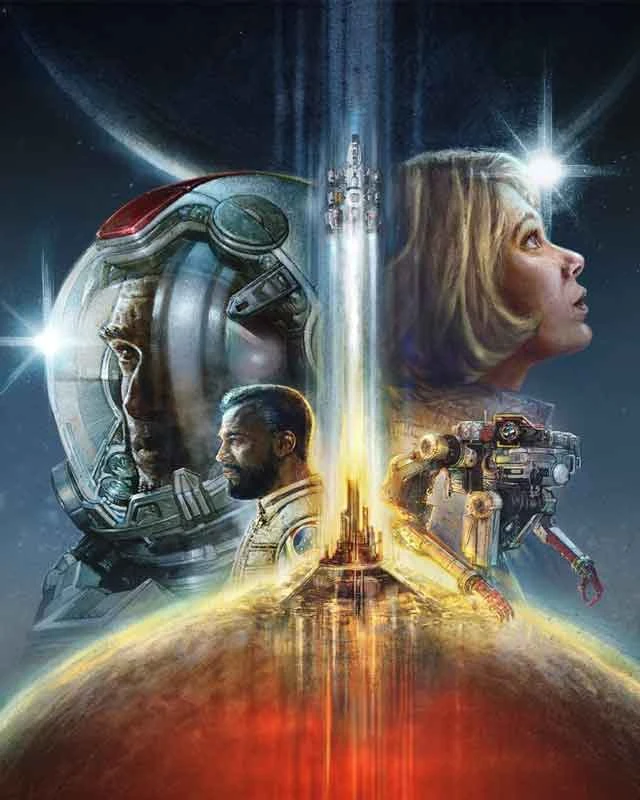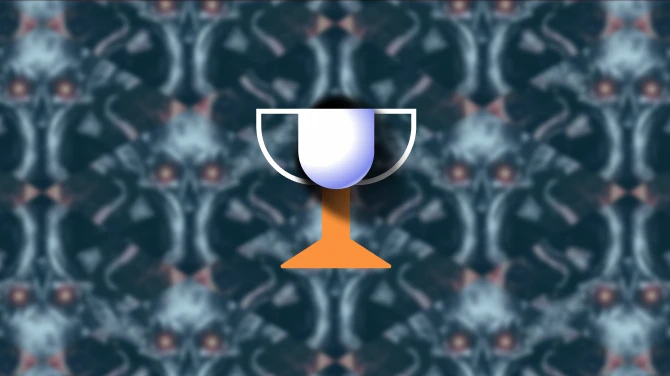So here's a funny thing about classical theatre: People like it more than they think.
For example, take one of the latest horror hits, namely The Backrooms. Pretty original, right? WRONG. It's simply a fresh paintjob on the Greek mythos of the Minotaur.
And I am by no means saying that as a bad thing, I just mean, Greek mythology and theatre was more than just a religion, its pantheon of deities inspired a great deal of art, poetry and literature, as well as epic stories of heroism and adventure.
In other words: Polytheism was kind of like comic books before comic books.
Not exclusively of course, but that was a big part of it. We even have a modern example of this, namely Hinduism. Obviously Hinduism is a lot more than just popular entertainment, but having read the Upanishads - an ancient Vedic religious text - it's easy to see that these stories weren't just plain statements of historical commentary and moral teachings, they had very colourful and evocative storytelling. They were clearly written to be interesting and engaging in a way that didn't just serve the spiritual value of such a work. And the same can also be said for Abrahamic texts too, albeit slightly less noticeable.
The reason I bring this up is because I think the Starborn are once again a reinvention of classical themes. Many people just say "Oh well, Starborn is just Dragonborn and Starfield is just Skyrim in space." But I think that's oversimplifying things. Yes, the name and gameplay mechanics are let's face it, basically recycled from Skyrim.
But, did you notice the part where they added on an entire system of fucking multiverses?
That's not a small accomplishment, and I don't think that addition would be possible if they listened to the evangelical mouthbreathers who review games on Youtube who tap their feet as they insist upon pure originality for its own sake.
But I don't need to tell you about how game reviewers are idiots, you can just watch their videos to figure that out. Point is: The dragonborn gameplay mechanics work just fine. It's a parallel levelling system where you collect the thing and gain a new ability. Totally fine, works as intended, a fun new feature to add flavour to the game. It doesn't need to be reinvented with a slightly different thing that then produces a slightly different result in an effort to placate a bunch of overgrown toddlers who would then proceed to come up with a new pointless issue to complain about.
But what about the themes of it all?
Well, Starborn of course have a chosen one narrative. A thing common in a lot of prechristian religions as well as certain prophecies from cultures indigenous to the Americas. Not to be confused with a Messianic figure. A Messiah figure ends up saving people, or doing some kind of great act to help others. This is not in the slightest bit what the Starborn do. In fact, they're kind of assholes.
EDIT: Not that the chosen one narrative in indigenous cultures are always assholes, I just mean that a chosen one can be pretty much anything from a benevolent or heroic individual to just a cold blooded murderer depending on historical context and societal development etc.
And that makes a lot of sense. For one thing: In order to enter the unity you basically need to abandon pretty much anyone you've ever cared about. That's step 1. And while there is a kind of cosmic diatribe about how you will see them in infinite universes and in infinite ways and so on, this to me feels more nihilistic than anything else, effectively diluting any connection you have to others. So that's step 1, sever all ties to the world around you in the search of some abstract notion of truth which in itself is just a series of existential repetitions which, in turn, fruitlessly reproduce things you've already seen, as you realise infinity and void are fundamentally the same things as you will move between cycles of life and rebirth in some hope of climbing to a higher state of being with each iteration. Because, in the end, the truth is so stupidly simple: You arrive at your destination the moment you decide to stand still.
...huh. Unexpected Buddhism.
But anyways:
2. What makes it different from Nirvana however is that there's no karmic force. Your existence is entirely detached from any tangible notions of morality. You can steal, murder and cause as much mayhem as you want, and then press the big reset button and maybe be nice to people for a while. Your entire idea of the value of a human life is purely abstract and, frankly, illusory.
Because think about it: Infinite universes doesn't just signify infinite life, but also infinite individuals who live that life. Violence can no longer deprive existence of something valuable, such as a human being, because guess what? You've subtracted a singular quantity from an infinite pool. Your actions have absolutely no consequences whatsoever. Especially considering how there's an infinite amount of universes where your infinite murder victim becomes Hitler, or even murders you. So in a way, everything is justified since everyone is both a victim and a murderer.
And to make matters worse: Since the multiverse is the product of what is presumably some sort of quantum state produced by atomic variation, you're essentially an inert observer to your own actions. Whatever you do is supposed to happen, you are but an extension of an inevitable product of unified field theory, existing as a sensory echo in a prescriptive cosmic narrative of events. If you do something wrong: That's because you're in the universe where you do the wrong thing, and some other version of you was apparently destined to do the right thing. You cannot fight the forces of causality, you are merely a cherry blossom petal floating in the wind, you cannot escape your reality anymore than you can define it.
And do you know who believed in that idea of morality?
That's right, the Japanese empire under Hirohito.
So simply put: The implications of the unity and Starborn are actually quite harrowing. And weirdly representative of both the best and the worst ideas to come out of Buddhist teachings.









0 comments